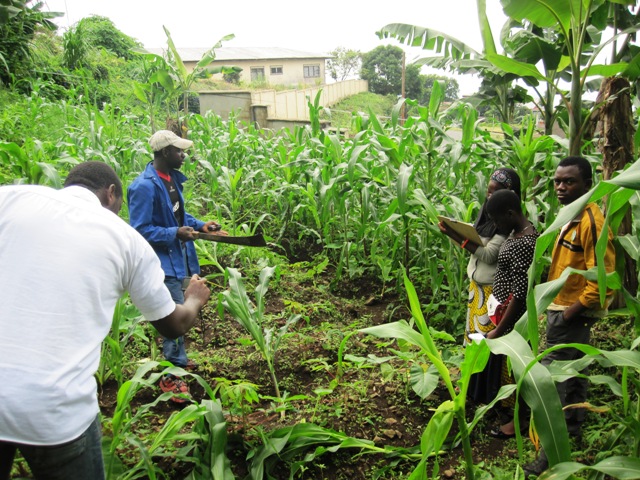Introduction
Every year on December 5th, we celebrate World Soil Day, a global initiative to raise awareness about the importance of healthy soil and advocate for its sustainable management. Soil, the thin layer of life-giving matter that covers the Earth’s surface, is the foundation for food production, ecosystems, and human well-being. It is a complex and dynamic ecosystem teeming with life, from microscopic bacteria to earthworms and other invertebrates. However, soil is a finite resource that is under increasing pressure from human activities such as agriculture, urbanization, and deforestation.
Soil quality is crucial for sustainable food production. Healthy soil is able to store and release nutrients, filter water, and provide a stable environment for plant growth. Degraded soil, on the other hand, is less productive and more susceptible to erosion and other threats. In Cameroon, soil degradation is a major concern, as it affects the livelihoods of millions of farmers and threatens the country’s food security.
There are many things that individuals can join Green Cameroon do, to protect and enhance soil quality. Some simple yet effective practices include:
- Composting: Composting kitchen and yard waste helps to create nutrient-rich soil amendments that improve soil structure and water retention.
- Cover cropping: Planting cover crops during the off-season helps to protect the soil from erosion, suppress weeds, and add organic matter to the soil.
- Reducing tillage: Tillage, the mechanical breaking up of soil, can damage soil structure and increase erosion. Minimizing tillage is essential for maintaining healthy soil.
- Avoiding the use of pesticides and herbicides: These chemicals can harm beneficial soil organisms and pollute groundwater.
Organizational and Governmental Actions to Protect Soil Quality
Organizations and governments also have a critical role to play in protecting soil quality. Some actions that can be taken include:
- Supporting sustainable agricultural practices: Governments can provide incentives and support for farmers who adopt sustainable practices such as conservation tillage, organic farming, and agroforestry.
- Investing in soil conservation programs: Governments can invest in programs that promote soil conservation practices, such as terracing, contour farming, and reforestation.
- Enacting policies to protect soil: Governments can enact policies that regulate land use, manage deforestation, and protect water quality, all of which are important for maintaining soil health.
At Green Cameroon, protecting soil quality is essential for ensuring a sustainable future for Cameroon and the world. By taking individual and collective action, we can safeguard this precious resource and ensure that it continues to provide us with food, clean water, and a thriving ecosystem for generations to come.
On this World Soil Day, we at Green Cameroon are calling on all to join us commit to protecting and enhancing soil quality. Let us make conscious choices in our daily lives that support sustainable practices. Let us support organizations and policies that promote soil health. Together, we can make a difference for our soils and for our future.


